Ohio Calf Solutions - Interview with Elaine Freer
Passion and dedication are a few words that come to mind when I think about Eliane Freer. Elaine and her husband Tom recently celebrated their 43rd wedding anniversary. They have spent the entirety of their marriage dairy farming with Tom’s grandmother and uncle. Elaine’s role has been to take care of the calves. She also works very closely with the reproduction technician on the breeding side of things. Elaine is also very involved in herd health and administers any treatments needed as well as keeps up with the book keeping.
Elaine and Tom also do a lot of calf consulting. Their offering includes consulting and products to keep calves healthy and thriving. Elaine and Tom don’t sell anything they don’t find useful in their own calf raising program. When they make deliveries, you will find them out walking calves and bringing value to their customers.
Q: What have been some of your biggest challenges raising calves?
A: Scours have always been a challenge. Years ago, I don’t think I realized that scours lead to respiratory issues down the road and overall compromised health. We started using Sync and Surveillance, it those seem to help a lot. Even when calves do get scours these products really help carry them through.
I have always fed colostrum replacement instead of colostrum. Mostly because of management issues that seemed to arise with employees. It’s been better for us to use the replacement and not risk that the colostrum may not have been handled properly. We use SCCL colostrum, and I hope to help others realize the value of it. SCCL is 100% colostrum with nothing added. We use it as an initial meal for the calf and then I add it to regular feedings for the first 2 weeks of life. Originally, we added 52 grams per 3 qt. bottle and subtracted 52 grams from the added milk replacer powder. Once we switched to Denkavit Milk Replacer, which is very high quality and low in ash, we could just add the colostrum replacer without removing any of the milk powder.
We asked our colostrum representative what we could do to make our feeding program a little cheaper, and he recommended that we just add 30 grams of colostrum replacer per feeding for the first 2 weeks of life. This is the protocol I usually recommend to others, but it is important that they be using a very high-quality milk replacer, or they will need to remove 30 grams of milk powder per feeding to make room for the colostrum replacer.
Another product that have been beneficial in helping us clean and prevent scours is SCG DK-II. It makes cleaning and sanitizing equipment quick and easy.
Q: What kind of housing do you have for your calves?
A: We house our calves in a barn. Ventilation is always a concern. We have a pressure tube running down the middle of the barn, and we also have curtains. It is always a challenge to know just how much to keep the curtains open to provide enough air flow without drafting the calves.
Q: What is your calf feeding program?
A: Years ago, we tried an accelerated feeding program from Land O’Lakes. It didn’t go well, and the calves had very watery scours. We then switched to Denkavit milk replacer, and we haven’t had any issues since. I learned a lot about how important it is to source a good quality milk replacer from that experience. Especially when attempting to feed greater volumes of milk.
Q: What is one of the most important things you have learned about raising calves?
A: How important water is. We never let our calves go without water, even in the winter, and we usually give our calves warm water. Water is so important for feed intake, growth, health, etc.
Q: What have been some of your biggest successes in raising calves?
A: Overcoming feeding the higher volume when we thought we couldn’t. This ended up with benefits in health and ADG. Watching the calves grow and production improve when they get to the milking herd is very rewarding. We are now breeding at 13 months vs 14 months, and we have a lower death loss. We never really lost very many animals, but now they are really thriving.
Q: Why do you feel that gut health is so important for your calves?
A: When stressful moments come, supporting gut health carries them through. They don’t struggle to survive; they push through the challenges and go on to thrive. It is easier to prevent illness than it is to go back and treat. On the front end we can support gut colonization with Sync. Then we maintain that with Surveillance. Since starting this program, it is very rare that I ever have to give the treatment level of Surveillance. We just give 10 ml. of Surveillance 1 time per day in the milk. It helps to improve everything from feed intake, to handling stress, and transition at weaning.
Thank you, Elaine, for sharing so many calf raising tips with our readers! If you would like to hear more from Elaine and Tom, check out their website or send them an email to tom_elainefreer@hotmail.com!
Written by: Mariah Gull, M.S.
